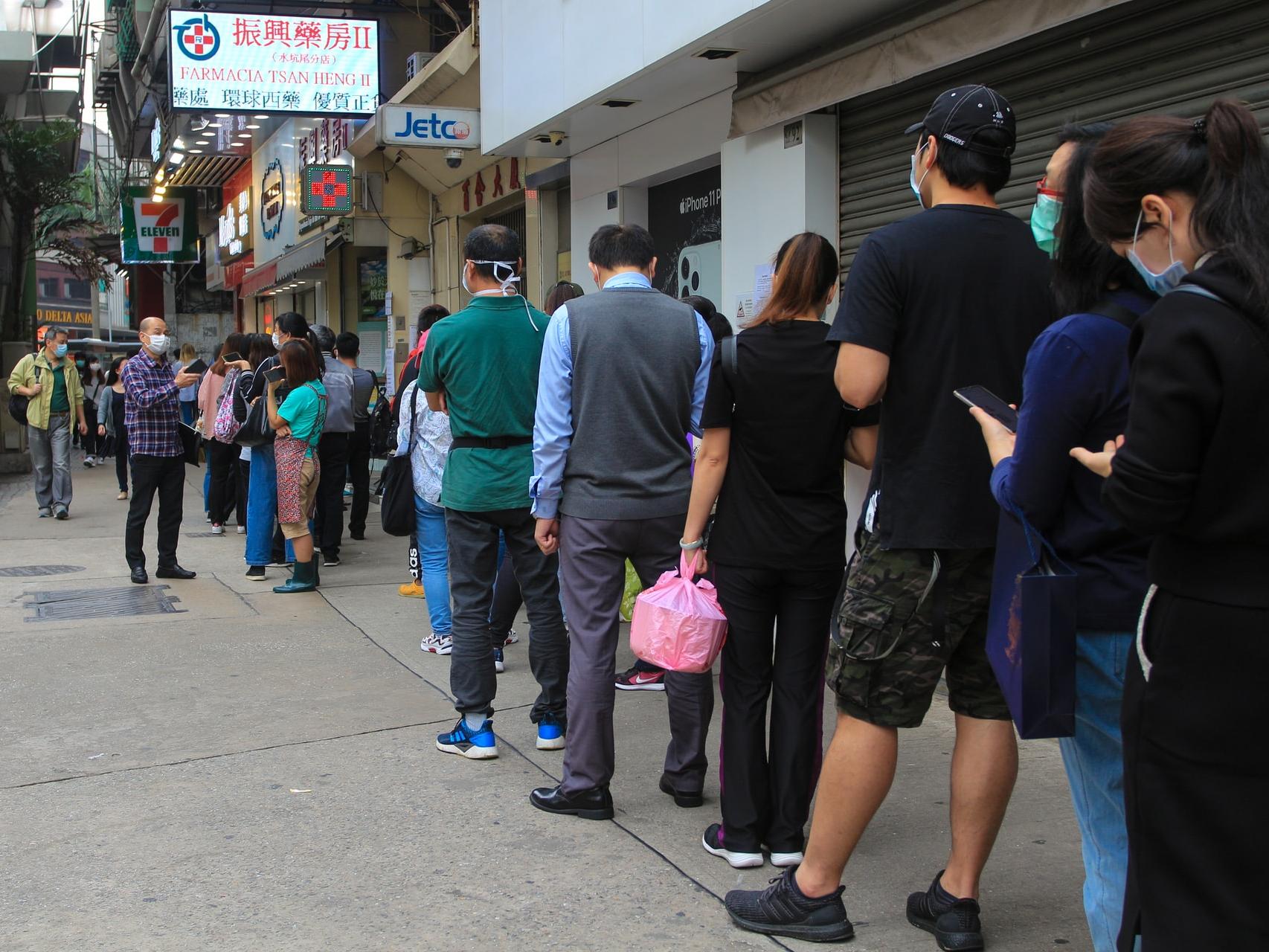
People in Macau, queue up to acquire face masks in a pharmacy under a program established by the government to supply all the population with masks to avoid hoarding and stock ruptures and price hikes. (RW)
The health crisis stress-tests our ability to cooperate, learn and adapt in the face of deep uncertainties and rising risks.
The new coronavirus, COVID-19, was declared a “public health emergency of international concern” by the World Health Organization (WHO) at the end of January and has since laid bare all the vulnerabilities at the heart of human development.
The Sustainable Development Goals will have suffered a mortal blow if the world does not get to grip with the increasingly systemic nature of disaster risk, including health.
The COVID-19 disaster is a manifestation of what the international scientific community has recognised for years: that in an increasingly interdependent world, our lifestyles, our choices mean that hazards are interwoven and spread throughout communities, societies and economies in complex ways that lead to systemic and cascading risks.
The 2019 U.N. Global Assessment Report on Disaster Risk Reduction (GAR2019) - produced in cooperation with hundreds of leading scientists including the WHO - specifically warned about the growing risk of biological hazards, notably the threat of pandemics and epidemics.
Biological hazards had been included, for the first time, in a globally agreed blueprint for reducing disaster losses, the Sendai Framework for Disaster Risk Reduction, adopted by U.N. member States on March 18, 2015.
As we clearly see now, COVID-19 is much more than a public health emergency. Systemic risks like COVID-19 speak to the inherent vulnerabilities lurking in the complexity of today’s interconnected global social, environmental and economic ecology.
As a stark example, COVID-19 shows that climate conditions, travel and trade, urban density, lack of access to clean water and sanitation and other realities of living in conditions of poverty and conflict combine with the inadequate risk management capacities of individuals and institutions to create the conditions for an outbreak to become an epidemic, a pandemic – and, ultimately, a global economic and social disaster.
Most importantly, the COVID-19 crisis stress-tests our ability to cooperate, learn and adapt in the face of deep uncertainties and increasing risks. Despite the disruption and suffering, it nevertheless provides governments and communities an opportunity to revisit much that underpins our modern world – from fundamental aspects of governance, investment and consumption, to our relationship with nature, and to place risk reduction at the heart of a policy reboot.